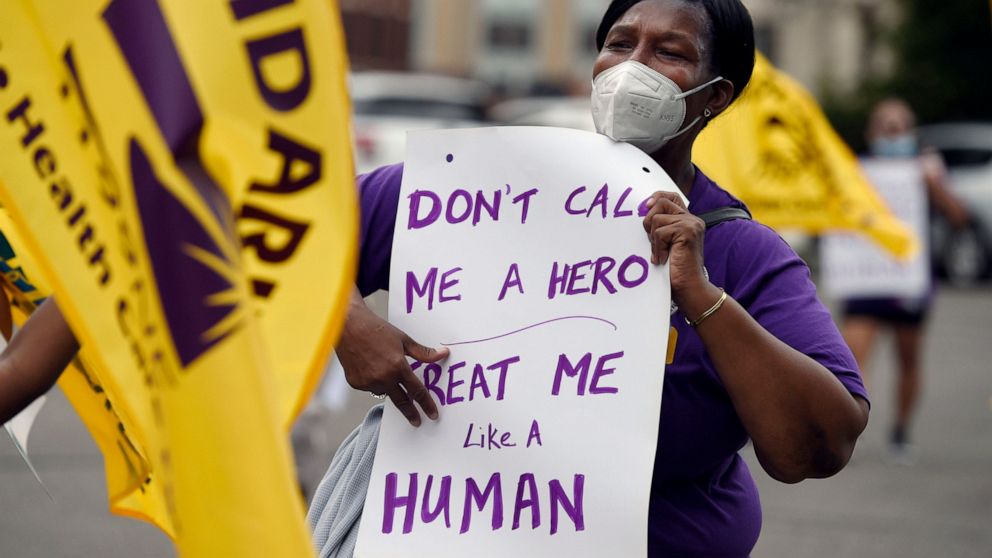
Who's a hero? Some states, cities still debating hazard pay
ABC News
While many workers deemed essential in their respective states have already pandemic hazard pay or hero pay, there are thousands more are still waiting for the same financial pat-on-the-back
HARTFORD, Conn. -- When the U.S. government allowed so-called hero pay for frontline workers as a possible use of pandemic relief money, it suggested occupations that could be eligible from farm workers and childcare staff to janitors and truck drivers.
State and local governments have struggled to determine who among the many workers who braved the raging coronavirus pandemic before vaccines became available should qualify: Only government workers, or private employees, too? Should it go to a small pool of essential workers like nurses or be spread around to others, including grocery store workers?
“It’s a bad position for us to be in because you have your local government trying to pick winners and losers, if you would, or recipients and nonrecipients. And hence by default, you’re saying importance versus not important,” said Jason Levesque, the Republican mayor of Auburn, Maine, where officials have not yet decided who will receive hazard pay from the city’s American Rescue Plan funds.
A year and a half into the pandemic, such decisions have taken on political implications for some leaders as unions lobby for expanded eligibility, with workers who end up being left out feeling embittered.
